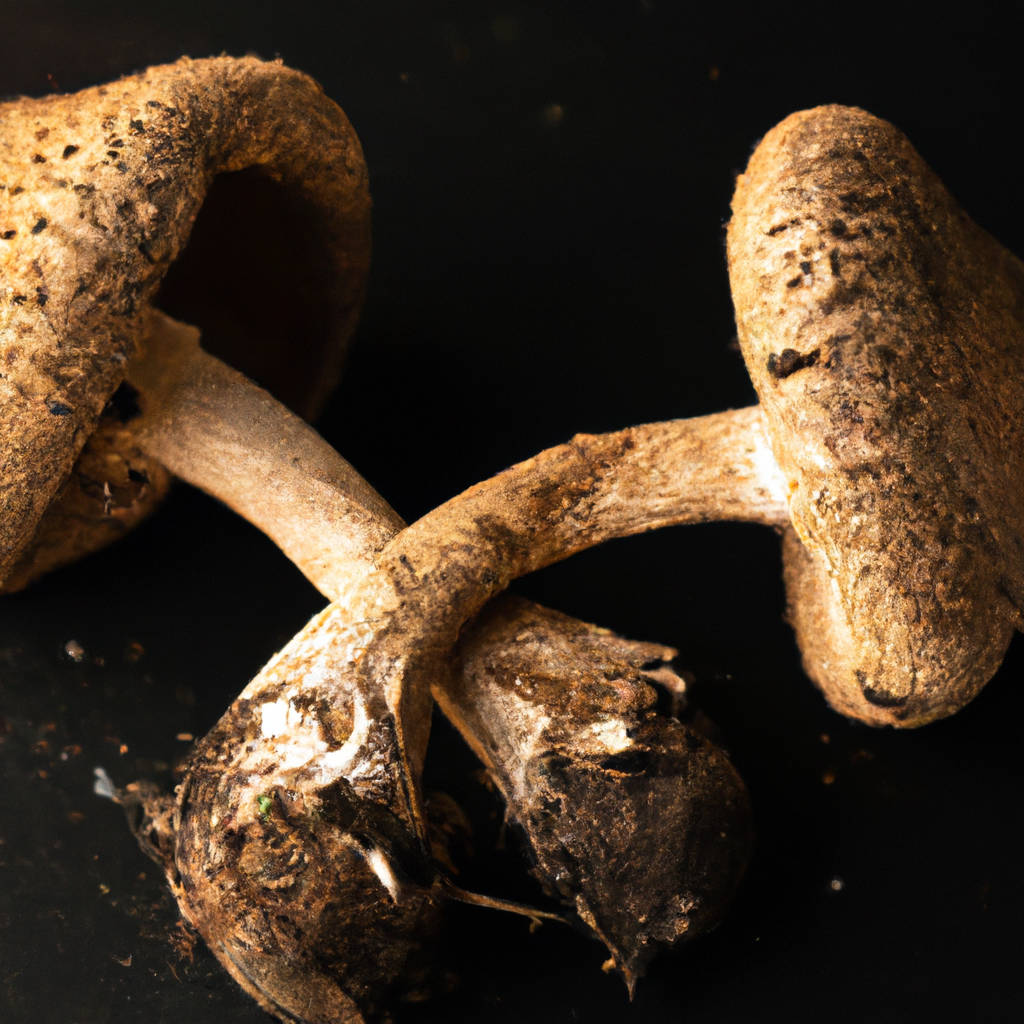The Promise and Caution of Psychedelic Mushroom Edibles: What You Need to Know
Psychedelic mushroom edibles, also known as psilocybin mushrooms, have been garnering attention for their potential therapeutic applications. Research indicates that they may be beneficial in treating mental health conditions like depression, anxiety, and PTSD. However, they should be approached with caution. These fungi have potent psychoactive properties that can induce hallucinations, altered perceptions, and changes in mood, thought, and behavior. For first-time users or those with pre-existing mental health conditions, these effects can be overwhelming and potentially harmful. Furthermore, the potency of such mushrooms can vary widely, making dosage control difficult. The long-term effects of psilocybin use are also not fully understood, and further research is needed to fully elucidate the risks and benefits of these substances. Therefore, while the promise of psychedelic mushroom edibles is tantalizing, individuals should exercise caution and ideally seek professional guidance before trying them.

Potential Health Benefits of Psychedelic Mushroom Edibles
Psychedelic mushroom edibles are increasingly gaining attention for their potential therapeutic benefits. Derived from Psilocybin mushrooms, these edibles have shown promise in preliminary studies for alleviating a range of mental health issues. Depression, anxiety, post-traumatic stress disorder (PTSD), and addiction are among the conditions that these mushrooms might help manage. The active compound in these mushrooms, psilocybin, initiates a powerful psychological experience that can bring about profound changes in one’s perception, mood, and cognitive processes. This can be particularly beneficial for individuals struggling with mental health issues, as it may provide a new perspective or insight, allowing them to break free from detrimental thought patterns.
Additionally, research has suggested that these mushrooms may promote neurogenesis, the growth and development of nervous tissue, which potentially contributes to improved brain health. Furthermore, for those facing life-threatening illnesses, psychedelic mushroom edibles may help alleviate existential distress and improve quality of life by reducing the fear of mortality and promoting a sense of interconnectedness and spiritual wellbeing. However, it is important to note that these benefits are typically experienced in controlled, therapeutic settings under the guidance of trained professionals. In addition, further research is needed to fully understand the long-term effects and potential risks associated with the use of psychedelic mushroom edibles. Despite this, the preliminary findings are certainly intriguing and suggest a potential revolution in mental health treatment strategies.
Expert Warnings and Considerations
Expert warnings and considerations are critical elements in navigating various fields, be it health, technology, finance, or environmental concerns. These recommendations come from professionals who have spent years studying and gaining deep insights into their respective areas. Their guidance is based on extensive knowledge and research, offering invaluable insights that could potentially prevent negative outcomes. Hence, it is essential to heed their advice. However, one must remember that expert advice is not infallible. There might be instances where they have differing opinions or their predictions don’t come to pass. This is due to the inherent uncertainty in many fields of study.

Thus, it’s crucial to take expert warnings and considerations with a degree of skepticism and critical thinking. Analyzing the information, cross-referencing it with other studies or expert opinions, and considering the potential consequences of disregarding the advice are prudent steps. Furthermore, it’s important to remember that experts often provide advice based on the best available data at the time, and as new information comes to light, their advice may change accordingly. In such scenarios, the public should be flexible and adaptable, understanding that the primary goal of these professionals is to provide guidance that promotes optimal outcomes in their respective fields.
The Legal Landscape of Psychedelic Mushroom Edibles
The realm of psychedelic mushroom edibles is a complex and evolving one, fraught with varying regulations and societal implications. The primary active compound in these edibles, psilocybin, has been categorized as a Schedule I substance under the Controlled Substances Act for many years. This classification implies a high potential for abuse and no currently accepted medical use, hence placing restrictions on its possession, sale, and use. However, the landscape has been gradually shifting in recent years, with some jurisdictions easing their restrictions. For instance, the cities of Denver, Oakland, and Santa Cruz have decriminalized the use and possession of psilocybin, and the state of Oregon has even legalized its therapeutic use.
These changes have been fueled, in part, by emerging research suggesting potential therapeutic benefits of psilocybin for mental health disorders such as depression, anxiety, and PTSD. Nevertheless, the overall regulatory environment remains diverse and inconsistent, with many areas still maintaining strict prohibitions. This dynamic scenario creates a certain level of ambiguity and uncertainty for both users and providers of psychedelic mushroom edibles. Moreover, it raises questions about the broader societal and public health implications, such as the potential for misuse and the need for appropriate education and harm reduction strategies.
Personal Stories and Testimonials
Personal stories and testimonials serve as powerful tools in conveying experiences, perspectives, and sentiments. They are narratives that stem from individual experiences, offering a first-person perspective of events, situations, or phenomena. These narratives can be enlightening, evoking deep emotions, empathy, and understanding in the listener or reader. They can challenge our preconceptions, broaden our horizons, and inspire us to change.
Testimonials, on the other hand, are a form of endorsement where individuals share their positive experiences with a product, service, or organization. They are often used in marketing, providing potential customers with an authentic, relatable perspective that can influence their decision-making process. Testimonials can instill trust and credibility, especially when they come from individuals who are similar to the potential customer or have experienced similar problems or needs.

Both personal stories and testimonials can be potent in their impact. They can provide us with a deeper understanding of human experiences, inspiring empathy and compassion. They can also influence our decisions and actions, shaping our perceptions, attitudes, and behaviors. However, they also come with a responsibility – for the one sharing to be truthful and for the listener or reader to consider the information critically. After all, while these narratives can offer valuable insights, they reflect individual perspectives and experiences, which may not be universally applicable or accurate. Always mindful of this, we can truly appreciate the power and value of personal stories and testimonials.
How to Make Informed Decisions
Making informed decisions is a crucial skill that can be honed with time and practice. It requires a deep understanding and analysis of the situation at hand, and a thorough evaluation of all possible outcomes. The initial step in making an informed decision is gathering all relevant information. This could involve conducting research, consulting with knowledgeable individuals, or even seeking expert advice. The next step involves analyzing the information obtained. This could mean identifying potential risks, rewards, costs, and benefits associated with each possible course of action.
Moreover, it’s important to consider alternative perspectives and viewpoints, as this can lead to a more comprehensive understanding of the situation. Once all the data has been processed, it’s time to make a decision. However, it’s essential to think critically and not rush into a decision. It’s often beneficial to take some time to contemplate your options, as this can lead to a more measured and thoughtful decision.
Lastly, after making a decision, it’s crucial to review and reflect on the outcomes. This involves assessing whether the decision met your expectations and what could be improved in the future. Additionally, it’s important to remain open to feedback and continually strive to improve your decision-making skills.
In conclusion, making an informed decision involves a series of steps such as gathering information, analyzing it, considering alternatives, making a decision, and reflecting on the outcome. By adhering to these steps, one can make decisions that are not only well-informed but also beneficial in the long run. Remember, the goal is not to make perfect decisions, but to make better ones with each passing day. This approach promotes continual learning and improvement, which is fundamental to personal and professional development.
